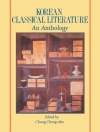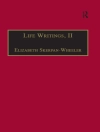Essays offering a gendered approach to the study of the move from manuscript to early printed book show how much women were involved in the process.
The transition from medieval manuscript to early printed book is currently a major topic of academic interest, but has received very little attention in terms of women’s involvement, a gap which the essays in this volume address.They add female names to the list of authors who participated in the creation of English literature, and examine women’s responses to authoritative and traditional texts in revealing detail. Taking its cue from the advances made by recent work on manuscript culture and book history, this volume also includes studies of material evidence, looking at women’s participation in the making of books, and the traces they left when they encountered actual volumes.Finally, studies of women’s roles in relation to apparently ephemeral texts, such as letters, pamphlets and almanacs, challenge traditional divisions between public and private spheres as well as between manuscript and print.
Dr Anne Lawrence-Mathers is Lecturer in History, University of Reading; Phillipa Hardman is Senior Lecturer in English, University of Reading.
Contributors: Gemma Allen, Anna Bayman, James Daybell, Alice Eardley, Christopher Hardman, Phillipa Hardman, Elizabeth Heale, Anne Lawrence-Mathers, Adam Smyth, Alison Wiggins, Graham Williams
Spis treści
Introduction – Anne Lawrence-Mathers
Domestic Learning and Teaching: Investigating Evidence for the Role of 'Household Miscellanies’ in Late-Medieval England – Phillipa Hardman
Domesticating the Calendar: The Hours and the Almanac in Tudor England – Anne Lawrence-Mathers
’A Briefe and Plaine Declaration’: Lady Anne Bacon’s 1564 Translation of the
Apologia Ecclesiae Anglicanae – Gemma Allen
Frances Wolfreston’s
Chaucer – Alison Wiggins
Commonplace Book Culture: A List of Sixteen Traits – Adam Smyth
Women, Politics and Domesticity: The Scribal Publication of Lady Rich’s Letter to Elizabeth I – James Daybell
’yr scribe can proove no nessecarye consiquence for you’?: The Social and Linguistic Implications of Joan Thynne’s Using a Scribe in Letters to her Son, 1607-1611 – Graham Williams
Fathers and Daughters: Four Women and Their Family Albums of Verse – Elizabeth Heale
The Book as Domestic Gift: Bodleian MS Don. C. 24 – C B Hardman
’Like hewen stone’: Augustine, Audience and Revision in Elizabeth Isham’s 'Booke of Rememberance’ [
c. 1639] – Alice Eardley
Female Voices in Early Seventeenth Century Pamphlet Literature – Anna Bayman
Bibliography
O autorze
PHILLIPA HARDMAN is Reader in Medieval English Literature (retired) at the University of Reading.












